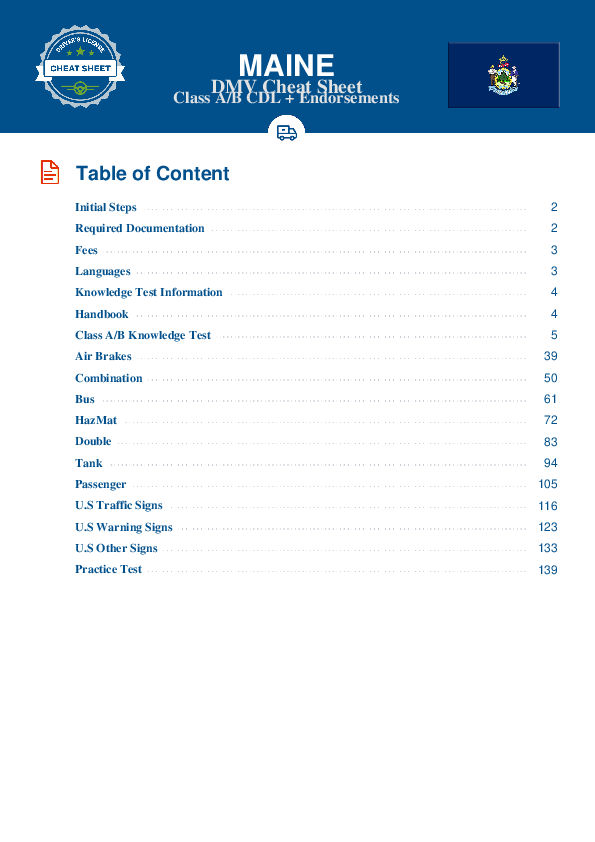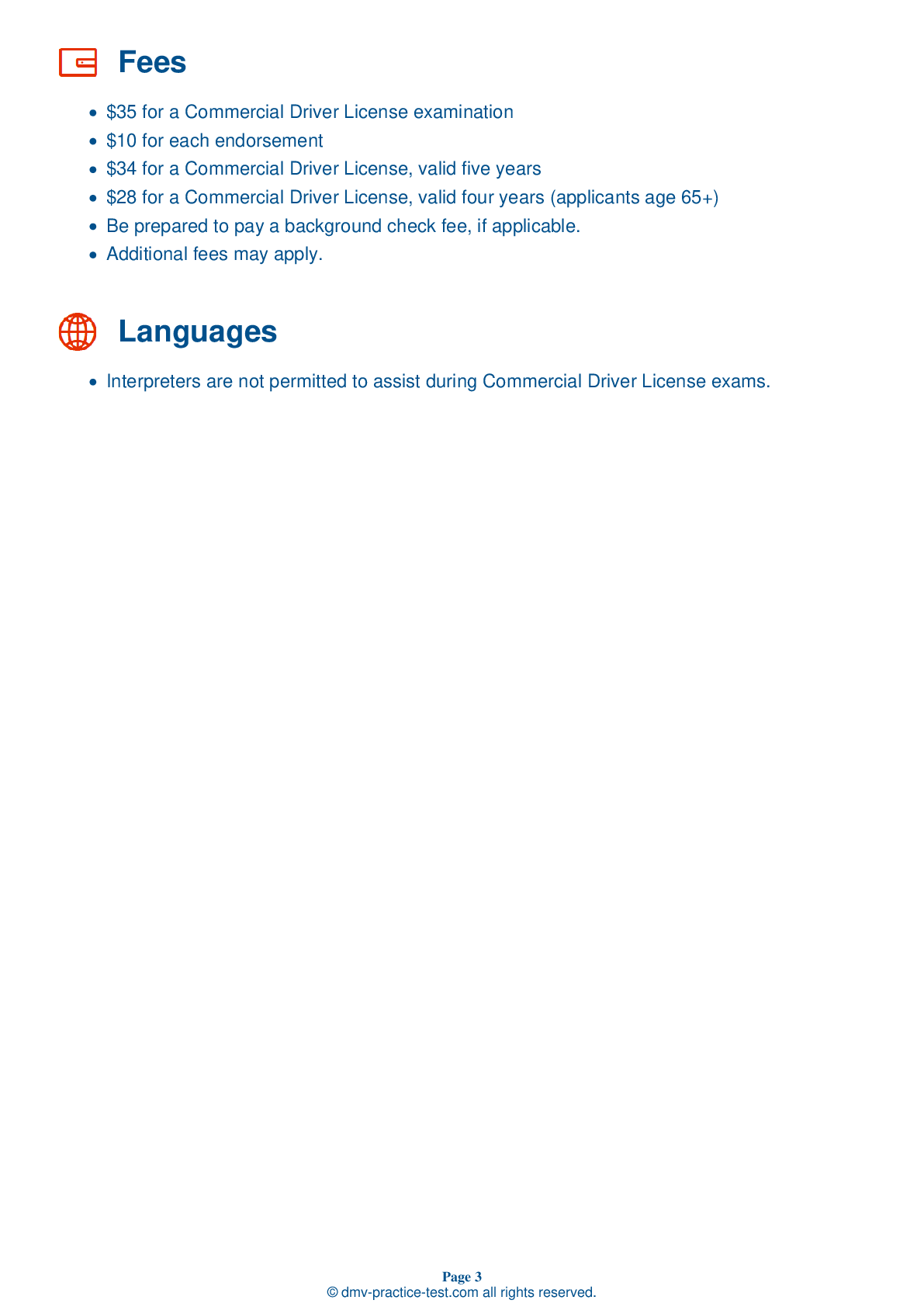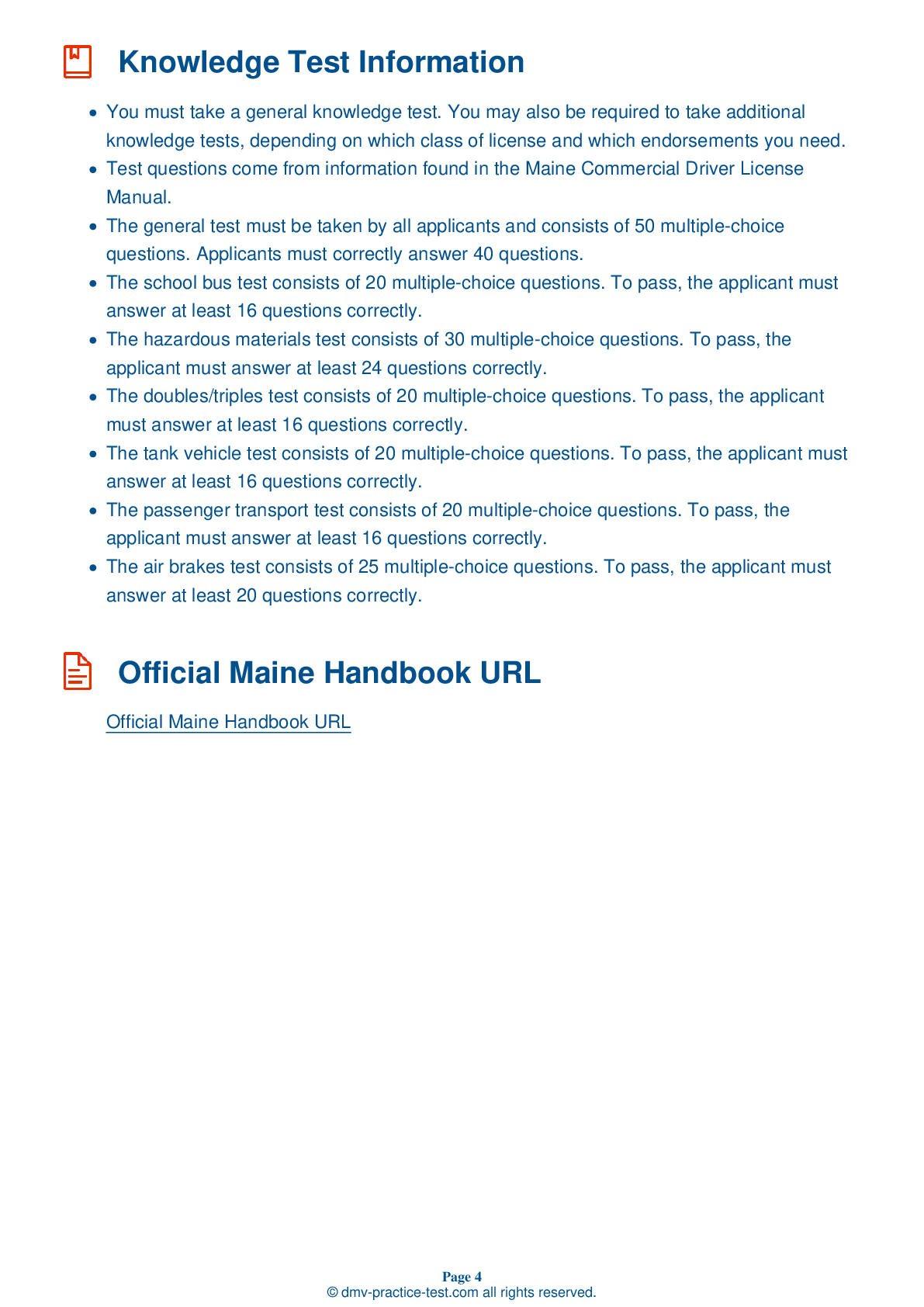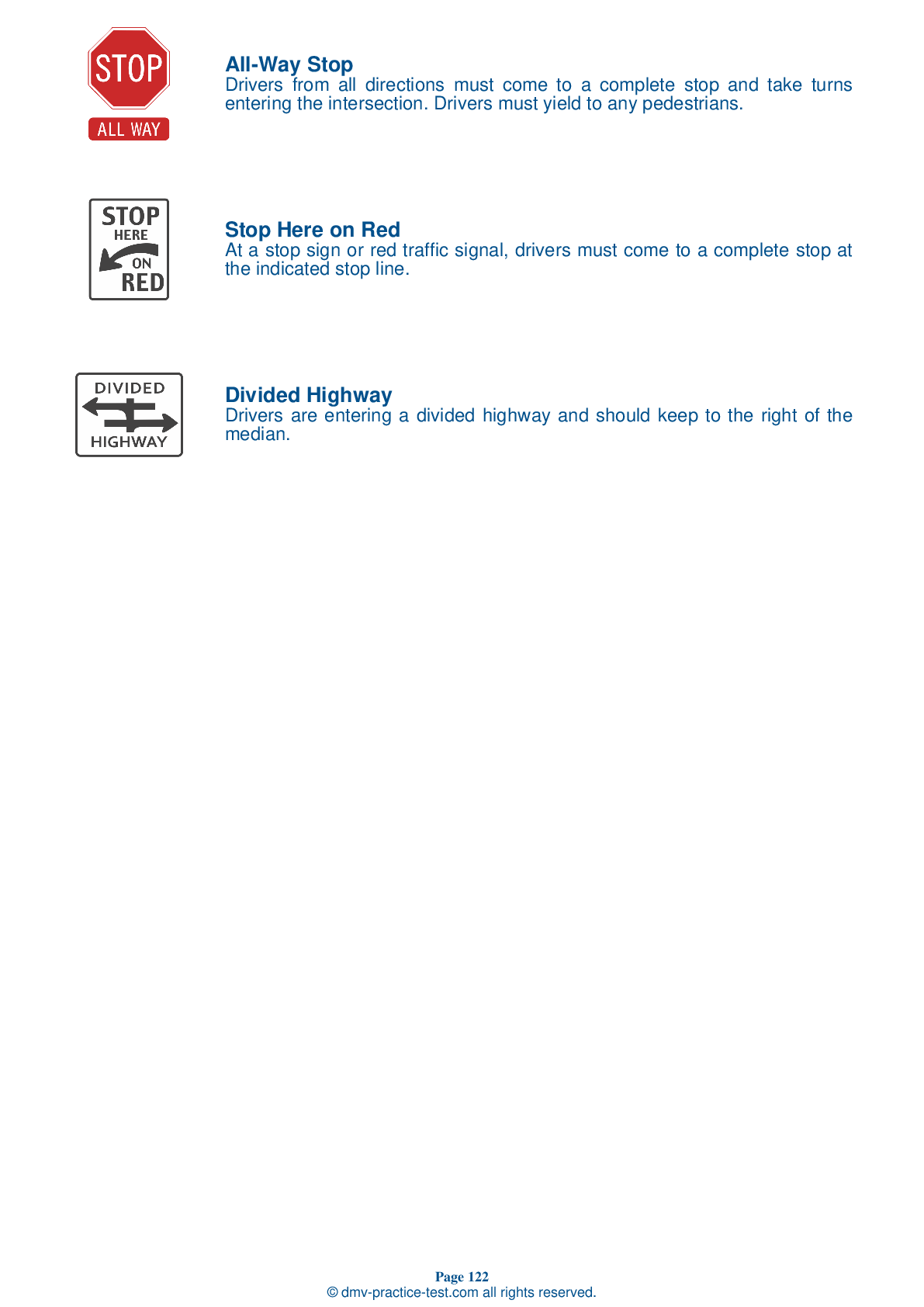Combination Vehicles Practice Test | Maine 2026 #2 Page 3 of 3
Train for FREE online with our Maine CDL combination vehicle test. The official exam test consists of several obligatory parts, with all of them checking your knowledge of different blocks of road rules. If you need to obtain a ME combination license in 2026, practice as much as possible. Free sample tests published on our website will help you check and improve your knowledge and boost your grades. Please bear in mind that DMV requirements for issuing a combination license may vary from state to state.
15 . The best way to recognize that your trailer has started to skid is by:
The easiest way to become aware that your trailer has begun to jackknife is to observe it in your mirrors. Checking your trailer in your mirrors will also allow you to spot any skidding at the earliest possible moment.
16 . Having anti-lock brakes on only one axle:
If a vehicle has anti-lock brakes on just one axle, the driver will still have more control during braking than they would without any anti-lock brakes.
17 . When backing up your tractor while coupling it to a trailer, the trailer brakes should be:
Correctly following the steps to couple and uncouple trailers is vital to safely operating a combination vehicle. Before backing your tractor under the trailer while coupling, make sure your trailer brakes are locked.
18 . A trolley valve:
The trailer hand valve (also referred to as the trolley valve or Johnson bar) is a mechanism that works the trailer brakes. It should only be used to test the brakes. Using it while the vehicle is being driven could cause a skid. Never use the trailer hand valve while parking because doing so may release the air pressure from the braking system, releasing the brakes that are holding the vehicle in place.
19 . Trailers built before ____ are not required to have spring brakes.
Trailers built before 1975 are not required to have spring brakes. When parking a trailer without spring brakes, be sure to use wheel chocks to prevent the trailer from rolling.
20 . If an air supply control is in its "emergency" position:
Tractor protection controls in older vehicles may be operated by levers instead of knobs. If an air supply control is set in its "emergency" position, the air supply will be stopped and the trailer emergency brakes will be applied.
See the exact questions that will be on the 2026 Maine DMV exam.
99.2% of people who use the cheat sheet pass the FIRST TIME
Lillian MCcranie explains how our CDL study guide was helpful in passing the exam and recommends it to everyone.
Cameron tells us how he purchased the CDL exam, and found it to be a useful tool which helped him pass the exam and find a job.



